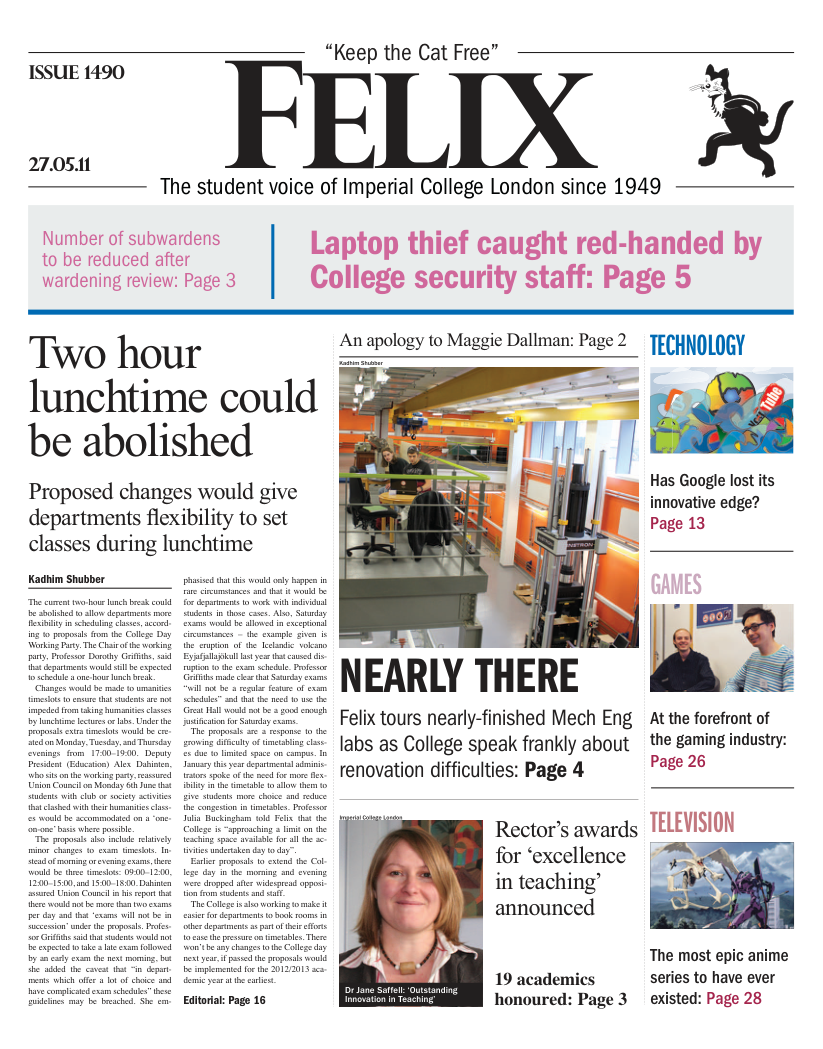Two hour lunchtime could be abolished
Proposed changes would give departments flexibility to set classes during lunchtime

The current two-hour lunch break could be abolished to allow departments more flexibility in scheduling classes, according to proposals from the College Day Working Party. The Chair of the working party, Professor Dorothy Griffiths, said that departments would still be expected to schedule a one-hour lunch break.
Changes would be made to humanities timeslots to ensure that students are not impeded from taking humanities classes by lunchtime lectures or labs. Under the proposals extra timeslots would be created on Monday, Tuesday, and Thursday evenings from 17:00–19:00. Deputy President (Education) Alex Dahinten, who sits on the working party, reassured Union Council on Monday 6th June that students with club or society activities that clashed with their humanities classes would be accommodated on a ‘one-on-one’ basis where possible.
The proposals also include relatively minor changes to exam timeslots. Instead of morning or evening exams, there would be three timeslots: 09:00–12:00, 12:00–15:00, and 15:00–18:00. Dahinten assured Union Council in his report that there would not be more than two exams per day and that ‘exams will not be in succession’ under the proposals. Professor Griffiths said that students would not be expected to take a late exam followed by an early exam the next morning, but she added the caveat that “in departments which offer a lot of choice and have complicated exam schedules” these guidelines may be breached. She emphasised that this would only happen in rare circumstances and that it would be for departments to work with individual students in those cases. Also, Saturday exams would be allowed in exceptional circumstances – the example given is the eruption of the Icelandic volcano Eyjafjallajökull last year that caused disruption to the exam schedule. Professor Griffiths made clear that Saturday exams “will not be a regular feature of exam schedules” and that the need to use the Great Hall would not be a good enough justification for Saturday exams.
The proposals are a response to the growing difficulty of timetabling classes due to limited space on campus. In January this year departmental administrators spoke of the need for more flexibility in the timetable to allow them to give students more choice and reduce the congestion in timetables. Professor Julia Buckingham told Felix that the College is “approaching a limit on the teaching space available for all the activities undertaken day to day”.
Earlier proposals to extend the College day in the morning and evening were dropped after widespread opposition from students and staff.
The College is also working to make it easier for departments to book rooms in other departments as part of their efforts to ease the pressure on timetables. There won’t be any changes to the College day next year, if passed the proposals would be implemented for the 2012/2013 academic year at the earliest.
Editorial – Lunchtime's over







